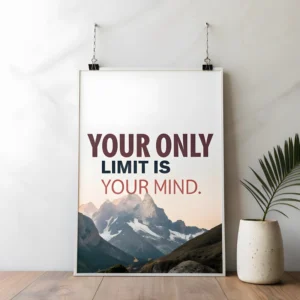Over the years, journaling has become one of the most powerful tools in my self-development journey. Whether I’m feeling overwhelmed by emotions, trying to clarify my goals, or simply reflecting on my daily life, putting my thoughts on paper helps me gain clarity and feel grounded. If you’re a woman in your 30s — or anyone looking to improve emotional well-being and self-awareness — journaling can help you process emotions, manage stress, and align your actions with your core values.
Why Should You Start Journaling for Emotional Well-being?
There have been many moments when my mind was busy and I had no one around to share what I was feeling or thinking. Journaling became my safe space to express myself without any judgment or need to explain. Writing things down helped me process emotions, reduce stress, and find clarity during difficult times.
I often combine free writing with prompts from books like Your Dream Life Starts Here and Manifest. These prompts guide me to explore my goals and dreams more deeply, which I found especially useful when I needed to focus my energy in a positive direction.
One tool I love is the “Gratitude” app — it’s free and perfect for quick reflections, especially when I’m travelling or don’t want to carry a physical journal. The app offers prompts based on your focus areas, like work, partnerships, or finances. Just a few words can shift your mindset and help you feel more grounded and thankful.
How Do You Build a Sustainable Journaling Habit?

Creating a regular journaling habit took some effort, but scheduling time in my Google Calendar helped a lot. I usually journal in the evenings as a way to wind down and process my day. When life gets hectic, I keep a journal on my nightstand so I can write whenever I need.
I find that a mix of free writing and guided prompts works best. Sometimes I write whatever comes to mind; other times I use book prompts to dig deeper into my values and goals. I’m also designing my own journals with prompts to help others start their journey, which I can’t wait to share.
If you prefer digital tools, apps like “Gratitude” make it easy to get started without feeling overwhelmed. Starting small — even just a few sentences a day — is a great way to build consistency.
Can Journaling Help You Navigate Difficult Emotions and Relationships?
Absolutely. Journaling has been invaluable during times of emotional turmoil — for example, after disagreements with friends or partners, or when self-doubt creeps in because of someone’s words or actions.
Writing down my thoughts helps me step back from the intensity of the moment, gain perspective, and calm my mind. It also allows me to revisit past entries later on, which is often a pleasant surprise. Looking back reminds me how much I’ve grown, and how problems that once felt huge seem smaller over time.
This reflection boosts emotional resilience and helps me make wiser choices, rather than reacting impulsively.
What Role Does Journaling Play in Self-Awareness and Emotional Independence?
Journaling helps me identify my core values, beliefs, and emotional triggers, which are essential for emotional independence. Understanding why I feel a certain way enables me to manage my reactions and make decisions that truly align with who I am.
Writing about my feelings regularly encourages healthy coping strategies and builds confidence. It reduces my need for external validation because I learn to trust myself more — trusting my ability to evaluate situations and make sound judgments.
This emotional independence strengthens my sense of self, allowing me to make choices based on my values rather than trying to please others.
How Does Journaling Support Goal Setting and Personal Growth?

One of the biggest benefits of journaling is how it helps me set and track my goals. I follow the SMART framework, which means my goals are Specific, Measurable, Achievable, Relevant, and Time-bound. Writing these down keeps me accountable and focused.
I break big goals into smaller daily, weekly, and monthly tasks to avoid overwhelm. This clarity prevents me from multitasking unnecessarily and allows me to prioritise what truly matters — whether that’s personal growth, finances, or health.
When I put my values and priorities on paper, it’s easier to align my actions accordingly. Journaling turns vague wishes into actionable plans.
What Are Some Useful Tools and Resources to Enhance Your Journaling Practice?
Besides my physical journal, I use several tools to support my practice:
- Gratitude App: For quick daily reflections and prompts.
- Self-Help Books: Titles like Your Dream Life Starts Here and Manifest provide helpful journal prompts.
- Therapy and AI Support: Weekly counselling and the AI therapy app “Mental” complement journaling by offering additional emotional support.
- Podcasts: Affirmation and meditation podcasts like “Meditation Mountain” and “10 Min Affirmations” on Spotify help me stay motivated and mindful.
Using these resources in combination keeps journaling fresh, inspiring, and manageable.
How Can You Get Started with Journaling Today?
Starting to journal is easier than you think. If the blank page intimidates you, begin with guided journals or apps that offer prompts. Even writing a few sentences about what you’re grateful for or what you want to achieve today is a great first step.
Set a small daily or weekly reminder to journal — think of it as a gift to yourself. It’s a moment to pause, reflect, and focus on growth rather than getting lost in endless scrolling on your phone.
Journaling has transformed how I manage my emotions, set goals, and build self-awareness. It’s a simple practice that brings clarity and calm to busy minds. If you’re ready to take control of your emotional well-being and personal growth, grab a journal, start writing, and see where your journey takes you.




